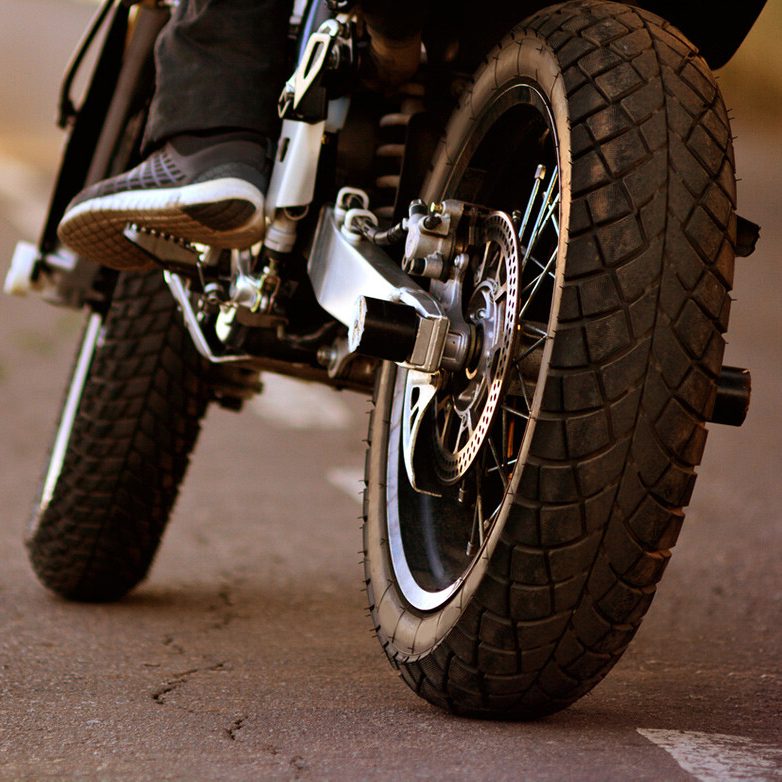Motorcycle Accident Lawyer St. Louis
Talk to a lawyer for Free 24/7 (314) 361-4242. Our Motorcycle Accident Lawyers fight to get compensation for accident victims. Only talk to an insurance claims adjuster after you speak with a lawyer!
Motorcyclists often suffer catastrophic injuries when they are involved in a collision with a car or truck. Compounding this already difficult situation is that the financial costs of a serious injury can easily exceed the available insurance coverage.
If you have been injured or a loved one was killed in a motorcycle accident, you must work with a motorcycle accident attorney who knows how to pursue all possible sources of compensation, including uninsured and underinsured motorists coverage.
FREE CASE EVALUATION

25 Years Only Car Accidents
Thousands Of Cases
Millions Recovered
What should you do after a St. Louis motorcycle accident?
Collecting and preserving important evidence after a motorcycle accident can help prove your personal injury claim for compensation from a negligent driver. If possible, follow the tips listed below.
- Photographs of the Accident Scene – At the scene of the accident, use your cell phone camera to take photographs of the scene. Take pictures of the bike lying on the ground and capture the point of contact between the bike and the car.
- Do Not Admit Fault – Sometimes an accident is your fault, and sometimes it is someone else’s fault entirely. Or maybe both drivers share some of the blame. However, in many cases, it is not always immediately apparent how an accident was caused. So, be careful about saying anything harmful to your claim. Accidents are confusing and traumatic, but keeping a clear head is important.
- Document Everything – Ensure all damages and injuries are documented with the police.
- Contact Your Insurance Company – Without admitting fault, you should call the insurance company as soon as possible and report the accident. You will need to give them specific information like the police report number, the name and badge number of the responding officer, and the other driver’s contact and insurance information. If witnesses are at the scene, you should also get their contact information. If the claims person asks you about damage to your vehicle or injuries, it is better to tell them you do not know yet than to guess. You may realize later that your injuries are more extensive or your motorcycle is more damaged than you initially thought, and you do not want to get locked into anything too early on.
- Police report – When the police arrive at the accident scene, they will make a report. The report will include a diagram of the accident scene and contact information for any eyewitnesses. It will also include notes about the weather conditions and whether the driver received any citations.
- Ask For Clarification – If the other driver was clearly at fault, your insurance company might work directly with the at-fault driver’s insurance company to cover your damage. Sometimes, insurance companies automatically assign responsibility to the motorcyclist, which will go on your record, increasing your rates. You should ask your insurance adjuster if you are assigned any fault for the accident. If the fault has been assigned to you, you may be able to file an objection.
- Helmet – Preserve the helmet the way it is and photograph it at the accident scene. By showing that you wore a helmet during the accident, you will prove that you did not contribute to your injuries and that the other driver was solely responsible.
- Eyewitnesses – Eyewitnesses can be crucial in proving your personal injury claim. Collect the contact information of any eyewitnesses and record their account of the accident.
- Surveillance Cameras – To gather more information about an accident, it is a good idea to check the area for surveillance cameras. If there are any businesses, schools, or other commercial properties nearby, they may have an outdoor surveillance camera that could have captured the accident. If this is the case, requesting a copy of the footage is possible.
- Debris – Photographs of the accident debris can also play an important role in proving your claim. Take pictures of the motorcycle parts that were broken during the impact.
- Medical Records – If you have suffered any injuries in the accident, preserve all the medical records to prove your claim. Keep a copy of your lab reports, prescriptions, diagnosis of the doctor, and test results.
- Work with a Mechanic You Trust – An insurance company may recommend a mechanic, but you do not always have to go to that mechanic. You should use someone you trust to give you an estimate that includes everything.
- Return to the Scene – Return to the accident scene as soon as possible after the accident to note any changes made to it.
Free Consultation with a St. Louis Car Accident Lawyer
Don’t talk to an insurance claims adjuster before speaking with The Hoffmann Law Firm, L.L.C. We can help you avoid making statements that may affect the outcome of your case. The consultation is free; you don’t pay unless we get you money!
Compensation for Injuries in a St. Louis Motorcycle Accident
Unfortunately, motorcycle accidents are often accompanied by serious injuries. You should be able to recover compensation for injuries sustained in a motorcycle accident. In addition to compensation for medical expenses, you may be able to recover funds for pain and suffering, lost wages, and disability. At this point, you should consult a motorcycle accident attorney to help you pursue full compensation successfully.
Counteracting the Bias Against Motorcycles and Bikers
Sadly, many people (including jurors) have preconceived notions about motorcyclists, namely that they are reckless drivers. We believe this reputation is undeserved and unfounded. Motorcycle accidents often result from the negligence or carelessness of other drivers who:
- Do not check their blind spot when making a lane change
- Do not see the motorcycle when entering or exiting a street or road
- Do not yield the right of way at a stop
- Made a sudden left-hand turn in front of an oncoming motorcycle at an intersection
St. Louis Auto Accident Attorney Christopher Hoffmann works hard to counteract this negative image of bikers. Through careful investigation of the accident and consultation with expert witnesses, he can often present evidence showing that the driver of the car, truck, or other vehicle was the precise cause of the accident.
Frequently Asked Questions About St. Louis Motorcycle Accidents
What to Do After a Motorcycle Accident?
Immediately after a motorcycle accident, ensure your safety and the safety of others. Call 911 if there are any injuries. Document the accident scene with photos and exchange information with the other parties involved. It’s also crucial to seek medical attention, even if you don’t feel injured, as some injuries might not be immediately apparent. Lastly, consult a motorcycle accident lawyer to understand your rights and options.
How Can a Motorcycle Accident Lawyer Help Me?
A motorcycle accident lawyer can help you navigate the legal complexities following an accident. They can assist in investigating the accident, gathering evidence, negotiating with insurance companies, and, if necessary, representing you in court. They aim to ensure you receive fair compensation for injuries, damages, and other losses.
What Are Common Causes of Motorcycle Accidents?
Common causes include other vehicles making left-hand turns in front of motorcyclists, lane splitting, road hazards, speeding, and driving under the influence. Understanding these common causes can help riders take precautions and potentially avoid accidents.
What Compensation Can I Claim After a Motorcycle Accident?
Compensation might include medical expenses, lost wages, pain and suffering, and property damage. The exact compensation will depend on the specifics of your case, including the extent of your injuries and the circumstances of the accident.
Is Missouri a No-Fault State for Motorcycle Accidents?
Missouri follows an at-fault system, meaning that the person responsible for the accident is liable for the damages. This is why determining fault is critical to a motorcycle accident claim in Missouri.
Contact a Motorcycle Accident Attorney
If you’ve been injured in a motorcycle accident, don’t talk to the insurance adjuster until you have had a chance to discuss your accident with an experienced personal injury lawyer.
Free Consultation (314) 361-4242Is Wearing a Motorcycle Helmet Necessary?
A helmet can be the difference between life and death in the event of a motorcycle accident. In fact, according to the NHTSA, wearing a helmet while riding a motorcycle can reduce your risk of brain injuries by up to 67 percent. Here are some important reasons you should wear a motorcycle helmet.
Reducing Wind Noise
While riding a two-wheeler, you are constantly bombarded with wind noise. This can be quite tiring and even dangerous if you have to concentrate on the road for a long period of time. Wearing a helmet helps reduce this noise, enabling you to focus on your ride and prevent distraction.
Improve Your Visibility On The Road
Inattentional blindness among car and truck drivers is one of the leading causes of accidents involving motorcycles. In essence, inattentional blindness is when a driver fails to see a two-wheeler right before them because they are not expecting or looking for it. Wearing a brightly colored helmet can help improve your visibility on the road and make it less likely that you will be involved in an accident.
Helmets Can Save You Money
Wearing a helmet can help you avoid costly medical bills and time off work due to injuries sustained in an accident. Some insurers even offer discounts on motorcycle and bicycle insurance premiums for riders who wear helmets.
Prevent Death
Did you know that wearing a helmet while riding a motorcycle can reduce the risk of death by up to 37%? Wearing a helmet is one of the most effective ways to prevent death while riding a two-wheeler.
Reduce The Risk of Road Rash
Road rash occurs when skin rubs or scrapes against the pavement. Wearing a helmet can help reduce the risk of road rash because it protects your skin and the pavement.
Improve Your View
While it may seem counterintuitive, wearing a helmet can improve your view. Many helmets have visors that help block the sun and other objects from obstructing your view.
Choosing the Right Motorcycle Helmet

A good helmet should be comfortable and, most importantly, provide adequate protection.
Unlike a car that provides those inside some level of protection in the form of airbags, seatbelts, and a metal frame, motorcyclists are out in the open, vulnerable to whatever may come their way. This is very scary as in the event of an accident, your head, neck, and spinal cord are all at risk of severe injury or death.
Fortunately, wearing a helmet can greatly reduce your risk of sustaining a serious or fatal injury in an accident. In fact, according to recent studies, wearing a helmet reduces the risk of head injuries by 69% and that of death by 42%. With this in mind, it is clear that wearing a helmet could be the difference between life and death.
However, to fully protect yourself, you must choose the right helmet. A good helmet should be comfortable and, most importantly, provide adequate protection. To help you choose the right helmet, we have put together a list of things to keep in mind when shopping for a motorcycle helmet:
Helmet Type
There are three main types of helmets: full-face, open-face, and half-face. Full-face helmets generally offer the most protection, covering the entire head, including the chin and face. Open-face helmets only cover the head’s top and back, exposing the face. Half helmets offer the least protection, covering only the top of the head. When choosing a helmet, it is important to decide what type of coverage you are looking for.
Helmet Fit
A helmet should fit snugly and comfortably on your head—not too loose or tight. To test the fit, put the helmet on and fasten the straps. Next, try to move the helmet from side to side and up and down. If the helmet moves more than an inch in any direction, it’s too loose. If you cannot get the helmet on or if it feels too tight, it is too small.
Field of Vision
Another important consideration when choosing a motorcycle helmet is the field of vision. You want to ensure a clear and unimpeded view of the road ahead. To test the field of vision, put on the helmet and look from side to side and up and down. If you cannot see clearly in all directions, the helmet is unsuitable for you.
Weight
Another factor to consider when choosing a motorcycle helmet is the weight. A heavy helmet can be tiring for long periods and may even cause neck pain. On the other hand, a light helmet may not provide enough protection in an accident.
Ventilation
You want to ensure your helmet has adequate ventilation to keep your head cool and dry. To test the ventilation, put on the helmet and fasten the straps. Next, stand before a fan and turn it on to full power. The helmet has adequate ventilation if you feel cool air coming through the vents. If you don’t feel any air coming through the vents, then the helmet does not have adequate ventilation.
Padding
You wouldn’t want to wear a too hot and stuffy helmet, so choose one with adequate padding. To test the padding, put on the helmet and fasten the straps. Next, press firmly on the padding with your fingers. If you can feel your fingers pressing through the padding, then the helmet does not have adequate padding. Sadly, insufficient padding also reduces the helmet’s ability to protect your head in the event of an accident. It would be best to find one that’s well-padded.
Remember to wear your helmet when riding, regardless of distance or duration—it could be the difference between life and death.
Why Choose Us vs TV Lawyers?
Direct Attorney Access
Maximum Settlement Focus
Trial-Ready Cases
Paralegal Handling
Quick Settlement Push
Settlement-Only Focus
Free Consultation with a St. Louis Car Accident Lawyer
Don’t talk to an insurance claims adjuster before speaking with The Hoffmann Law Firm, L.L.C. We can help you avoid making statements that may affect the outcome of your case. The consultation is free; you don’t pay unless we get you money!

